Privacy Ιmpact Αssessment systems are known as PIA software for short. This service category can be delivered as on-premises software or in a Software-as-a-Service (SaaS) format from cloud-based providers.
Data privacy is becoming a very hot topic in the business world thanks to PCI DSS and HIPAA in the USA and the GDPR in the EU.
Here is our list of the six best PIA software and tools:
- Vigilant Software DPIA Tool EDITOR’S CHOICE A guided PIA system can be used by anyone without the need for legal or technical knowledge. This is a cloud-based system.
- OneTrust Assessment Automation This guided cloud-based assessment system separates PIA and DPIA into two steps when formulating a data privacy management policy.
- TrustArc Assessment Manager An online privacy management platform that includes PIA guidance, risk assessments, and compliance guidance.
- BWise IT Governance A cloud-based GRC platform that includes guidance for developing a privacy policy through PIA and risk assessment.
- Mandatly Intelligent Assessment A privacy standards compliance system that starts with a guided PIA service.
- Privado A cloud-based subscription service that includes full GDPR compliance, including a privacy impact assessment tool.
You can read more about each of these options in the following sections.
Data privacy risks
If you hold information on individuals in a digital format, you need to organize a data privacy strategy. Data about people is called “Personally Identifiable Information,” or PII. If that data relates to health treatment or health insurance, it is called “Protected Health Information” (PHI). Payment card details are collectively known as “PAN.” This stands for “primary account number,” which is the top piece of information that indexes all payment-related data that you might hold on individuals, so generally, “PAN” refers to PII for payments.
Understandably, PII, PHI, and PAN should be protected. Hackers can commit many types of fraud with this data. Those scams ruin people’s lives and can take years to untangle. They also threaten the viability of the world’s financial system and could potentially bankrupt the global insurance sector if it is not tackled.
Although hackers have many ways to trick individuals into disclosing their social security numbers, payment card details, and login credentials for many online systems, getting a complete customer database from a company is a bigger gold mine. The potential for fraudulent gain for hackers that steal PII from companies is far greater than with person-by-person phishing tactics.
Data privacy strategies
A significant advantage of industry data protection standards and national privacy legislation is that they give you a requirement to aim for. Essentially, they provide a framework couched in legal jargon. You just have to decode the legalese to get an instant data privacy strategy laid out. This even means that following one of those standards is a good idea even if you don’t operate in an area of business or work with customers in places covered by these rules.
A lot of these rules boil down to common sense. Some rulings are annoying, such as the EU’s GDPR requirement that PII can’t be moved out of the EU for storage or processing without consent. However, all rules need to be complied with, and they don’t offer a menu of options. There are different rules for different types of data. However, these can be segmented into PII, PHI, and PAN.
Your data privacy strategy will be slightly different depending on what type of data you hold. However, adopting one of the significant data protection standards offers a solid guideline for your data privacy strategy.
Privacy impact assessments
A Privacy Impact Assessment (PIA) is also known as a Data Protection Impact Assessment (DPIA). These are mandated by many of the data protection laws, such as GDPR, as a starting point for any business that holds PII, PHI, or PAN.
A PIA is a type of risk assessment. You will need to examine both your internal procedures and systems and also all external relationships. The working practices of your suppliers and associates are also crucial in a PIA if you share information on individuals with those other companies.
Examining your IT systems, you might discover that some of the processing performed is carried out by other companies that provide plug-in services. Some data might be stored on cloud servers, which is an issue that needs to be addressed – the provider of those services or server spaces are equally responsible for protecting the data their systems are involved with.
When you decide that your business needs a data privacy policy, you will start with a PIA. Once your data protection strategy is in place, you will need to perform a PIA as part of any project’s scoping phase. For example, if you are buying new software, moving to a new building, adding on a service, or starting a new division.
There are guidelines for privacy impact assessments available. However, these are not contained in legislation and are usually proprietary frameworks created by consultancies. So, if you want an off-the-shelf framework to follow, you will probably have to pay for it.
In the old days, when implementing a project, you would start by creating or buying a folder full of document formats. Now we are in the digital age, and those folders are software packages. These are made up of screens that you have to fill in with information about your business and the data you hold.
So, when you start your privacy impact assessment project, you will need a privacy impact assessment tool. It is also essential to know which data privacy standards your operations and data retention habits require. If your business operates on the Web, you could well be liable to comply with several standards.
The best Privacy Impact Assessment (PIA) tools
It is essential to distinguish between PIA and data protection software. The privacy impact system isn’t intended to implement privacy security for data. Instead, this is a tool that helps you set your data privacy policy.
Some platforms include PIA and data protection measures. These are called GRC systems. “GRC” stands for “governance, risk management, and compliance.” GRC tools help with policy formation in the “governance” part of their name. Data governance can also be tied to a business continuity plan because the places that data is held and methods for backing it up are part of both strategies.
What should you look for in a privacy impact assessment tool?
We reviewed the market for PIA software and analyzed the options based on the following criteria:
- A platform that offers PII management policy guidance
- A system that includes plans for handling user consent and record requests
- A tool that provides recommendations for secure working practices
- A system that contains recommendations for roles and responsibilities
- A program that can be tailored to specific data protection standards
- An opportunity to assess the system without cost
- Value for money in a system that will create legally secure procedures
Although implementing a data privacy policy might seem to be a one-time event, you will need to use the PIA system every time you engage in a new system expansion project. Be aware that you will need PIA software as an ongoing administration tool.
The PIA software will put working practices, audit goals, action logging requirements, risk assessments, and mitigation strategies that tie into a range of data privacy standards.
1. Vigilant Software DPIA Tool
The Vigilant Software DPIA Tool is about as exact as you can get when looking for a PIA system. This is a cloud-based system that anyone can use without the need for any legal or technical knowledge.
The system works like a wizard, giving the user a path of input requirements that guide the process. It will help you to identify data security risks and rank their impact. This is a system that you will keep running throughout your ongoing operations. Periodically, you will need to review and update DPIAs in response to system expansion projects.
The tool includes goal setting for PIA creation. It has graphics in the dashboard and report formats that you can use to provide achievements and communicate the purpose of the PIA to associates and other stakeholders.
This system works explicitly towards setting up a system of governance for GDPR compliance. The service is charged for by subscription, and you can choose to pay for it either monthly or annually. The company offers a 30-day free trial implemented as a first month’s subscription that is not charged for.
EDITOR’S CHOICE
Vigilant Software DPIA Tool is our top pick for a privacy impact assessment system because it focuses on one task – working towards GDPR compliance – and does it well. The dashboard for this service includes a guided workflow that anyone can use. You can use this system to review your governance strategy and adjust as your IT system expands.
Get a 30-day free trial: hvigilantsoftware.co.uk/product/dpia
Operating system: Cloud-based
2. OneTrust Assessment Automation
The OneTrust Assessment Automation service performs guided system and procedural assessments to create a data protection impact assessment, leading to the formulation of a GDPR-compliant data protection strategy.
The assessment system is based on a series of templates. The service requires that the administrator declares a series of roles with specific data management responsibilities. Each of those responsible officers has a series of investigative questionnaires to work through. This process is a plan with working practices, data handling procedures, and IT security requirements fully defined.
The templates in the OneTrust system are adaptable. This considers the fact that different types of organizations have other working practices and requirements for data sources. Each template covers a specific investigation, such as risk assessment, third-party risk assessment, data breach mitigation procedures, and data subject rights.
The interface of the assessment service is built to support collaboration. Each department will have tasks to perform within this system, and all of these workflows will channel through to the assembly of a completed plan.
The One Trust system will see you through to the implementation of your data privacy plan. The platform also includes systems for consent management and compliance auditing. You assess the OneTrust system on a 14-day free trial.
3. TrustArc Assessment Manager
The TrustArc Assessment Manager performs a gap analysis and risk assessment of your system for the data that it holds and the type of activities that your company engages in. These inputs determine the standards you need to follow and how you will strategize your business processes. This system simultaneously builds auditing processes and puts a process tracking system to create an audit trail. So, TrustArc will see you through your IT governance and data standard compliance tasks.
This service provides a series of templates that act as questionnaires and create an investigation workflow. You have tasks to complete, information to discover, and fields to fill in the templates hosted in the cloud-based system dashboard. The templates include explanations and AI-based consistency checks that will help you to make sure you filled in all of the required information correctly.
The templates come in sets, and you choose which pack to use according to whether your goal is GDPR or CCPA compliance or some other business strategy requirement that relates to data privacy. You can schedule a demo to get a look at the TrustArc Assessment Manager.
4. BWise IT Governance
BWise IT Governance is a system management platform that imposes the necessary checks and controls for data privacy assurance in any business. The IT Governance system is a template-based service that helps you onboard your business into the GRC platform of BWise. In effect, this lays down the prerequisites that the system demands to get your system fitted into the data control service of the GRC system.
BWise GRC is adaptable and can be specified to enforce compliance to more than 400 different data privacy standards. GDPR, CCPA, HIPAA, and PCI DSS are among those options.
The IT Governance system includes risk assessment for IT systems and system assessments for data processing, including data risk categorizations for each type of data that your company holds. Along with the process of assessing the business to get it fully managed by the GRC service, the IT Governance system helps you to put in place procedures for data loss mitigation and reporting structures to audit for compliance and report on security failures. You can request a demo of the GRC platform.
5. Mandatly Intelligent Assessment
Mandatly Intelligent Assessment helps you identify the scope of an assessment, set system boundaries for investigations, set project members and responsibilities, and allocate tasks to each member for data entry into the assessment system.
This is a template-based system that provides a framework for privacy impact assessments. This is a well-guided step-by-step process that anyone can manage. The workflows implemented by the template framework will be tailored automatically to the specific standards that you need to follow.
The privacy impact assessment system extends on through to implementation. It includes risk assessments both for internal procedures and for the actions of the third parties with which your company shares data or responsibility for data management.
The Mandatly Intelligent Assessment system will provide a data management plan with a focus on sensitive data stores. It also helps you to put into place audit trails and mitigation procedures. These can also tie into your company’s business continuity plan. The system generates data maps and risk assessment reports.
The Mandatly service is suitable for businesses that need to implement compliance with GDPR, CCPA, and Brazil’s LGPD. You can schedule a demo of the Intelligence Assessment system, and it is also possible to ask for access to the free edition.
6. Privado
Privado is a cloud-based subscription service that includes support tools for all phases of data privacy management, including a privacy impact assessment service. The Privado system is centered on a data mapping service and a cookie consent manager. However, the company has built an entire GRC system around these two core tools, and those facilities include a privacy impact assessment module.
The Privado platform is marketed in several packages – there are four editions. The first edition of the Privado system is free to use. However, that plan doesn’t include PIA functions. The paid plans are called Lite, Pro, and Growth. Although the Lite plan has automated assessments, these don’t amount to PIAs. You need the Pro or growth plans for those.
The Privado system is suitable for businesses that need to comply with GDPR or CCPA. The tools in the package include sensitive data locators, a data mapper, a security risk assessor, and a consent manager. The system also manages the process of gaining consent for data retention and data movement across borders. You can request a demo of Privado for a no-cost assessment.
L’article 6 Best PIA Software and Tools est apparu en premier sur Comparitech.
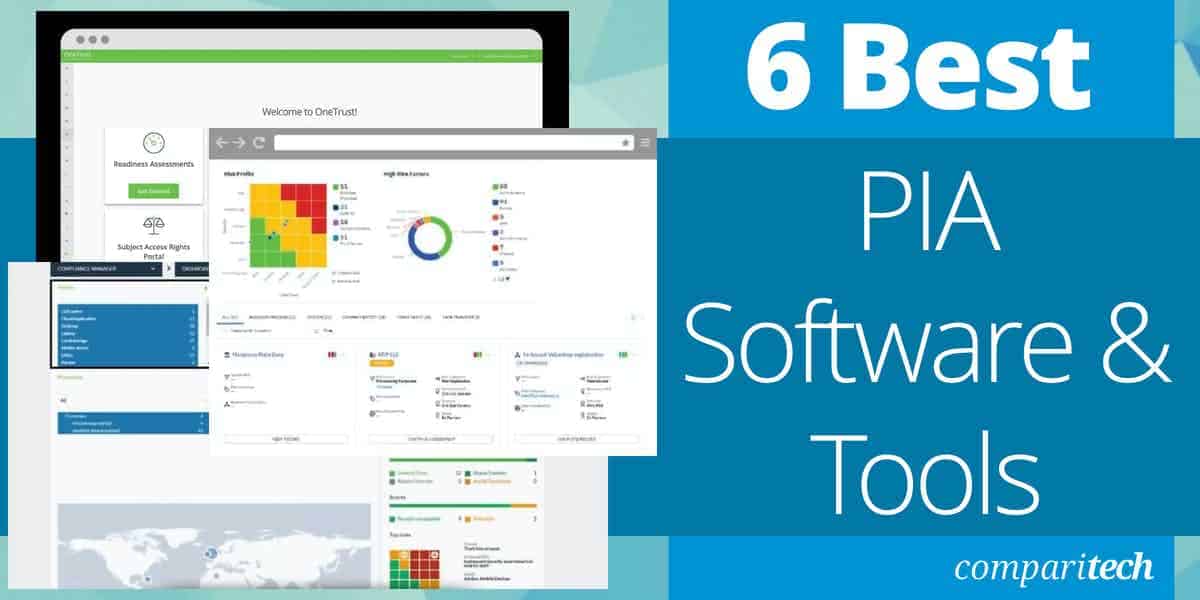
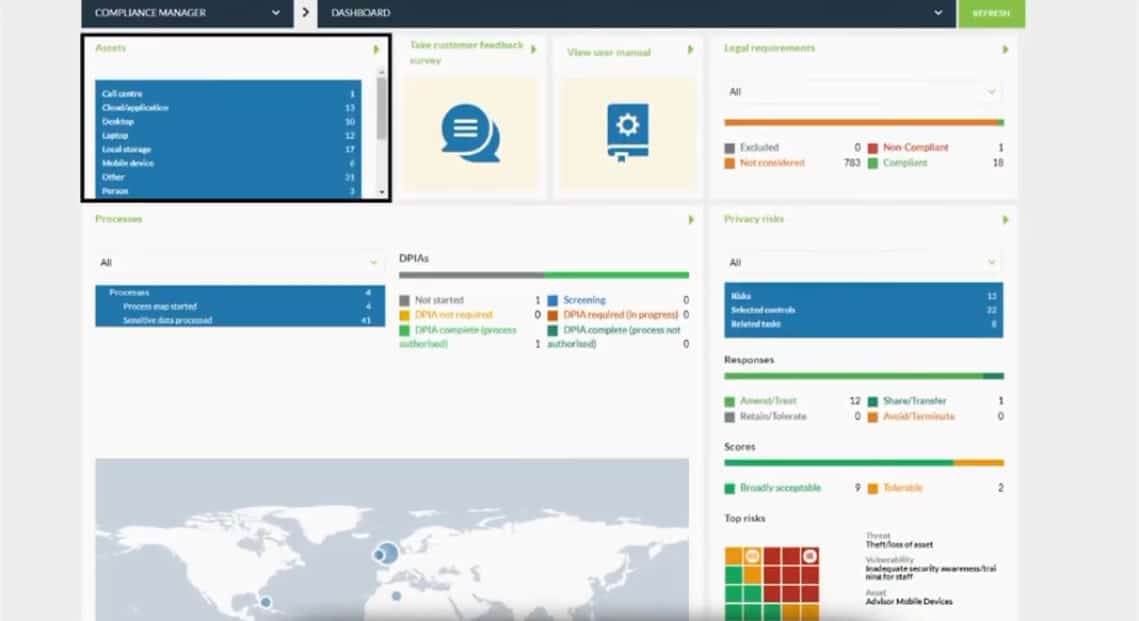
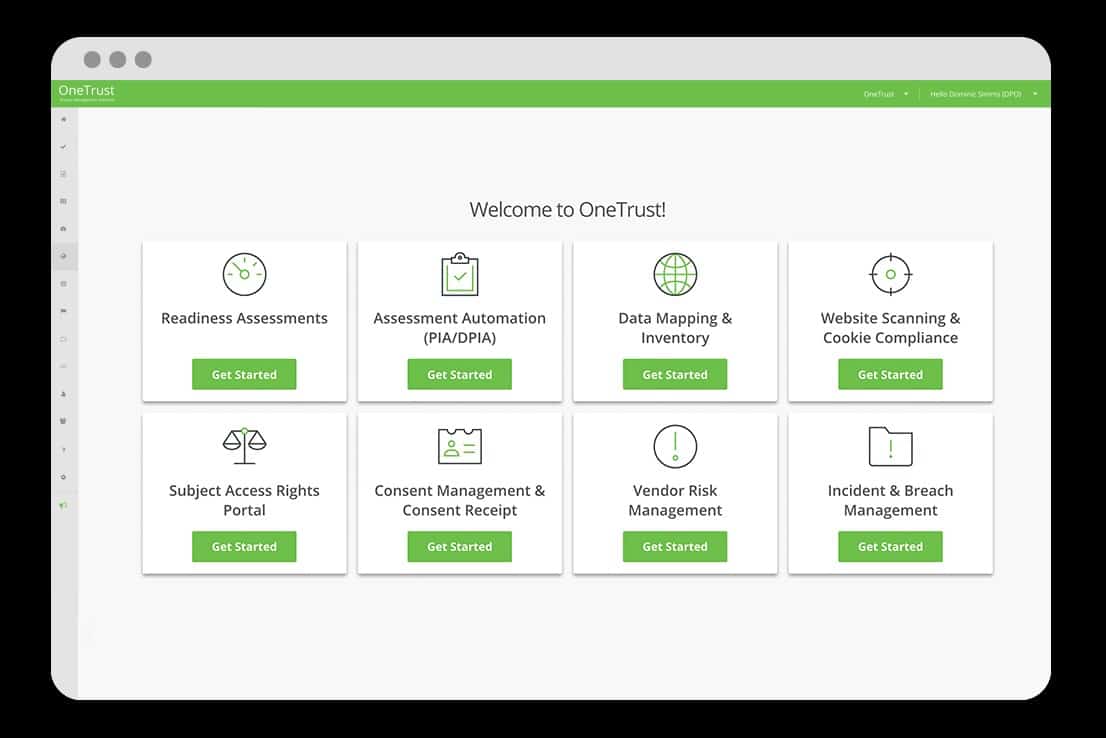
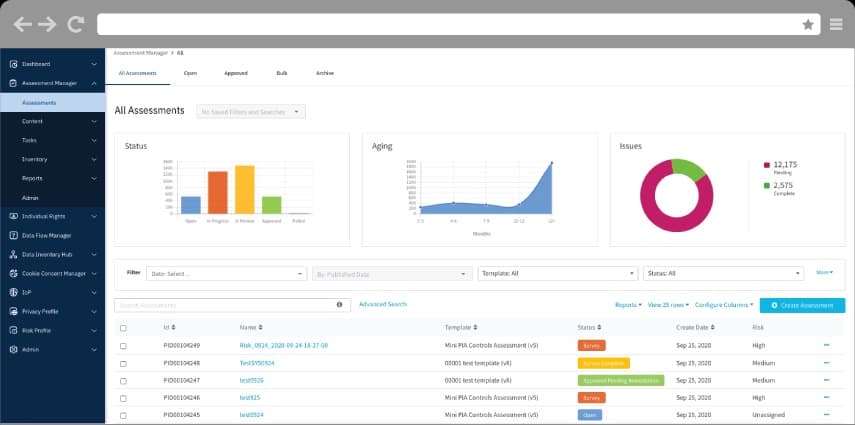
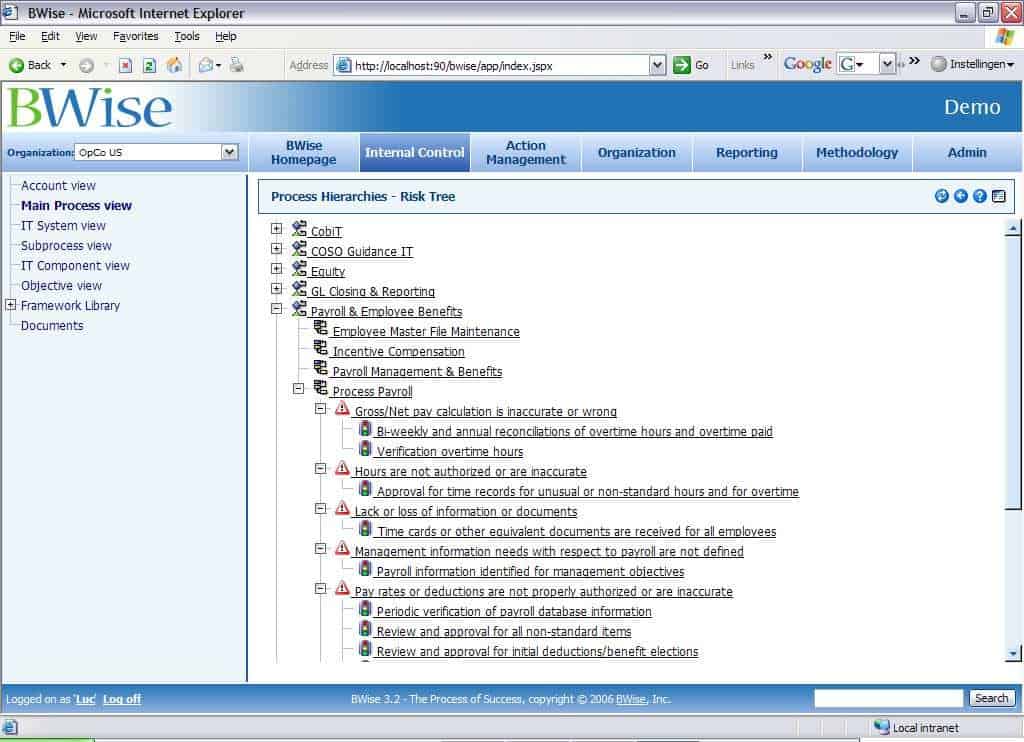
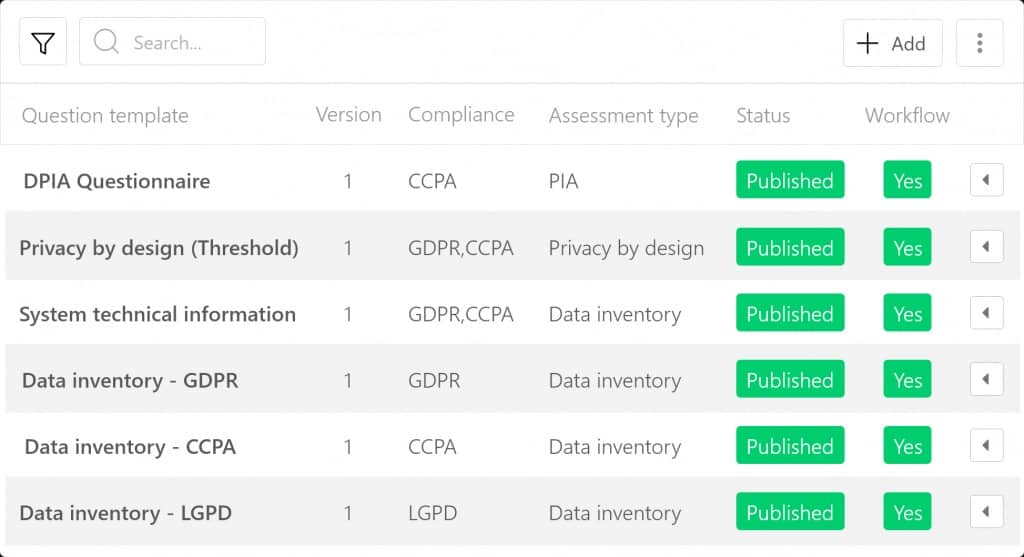
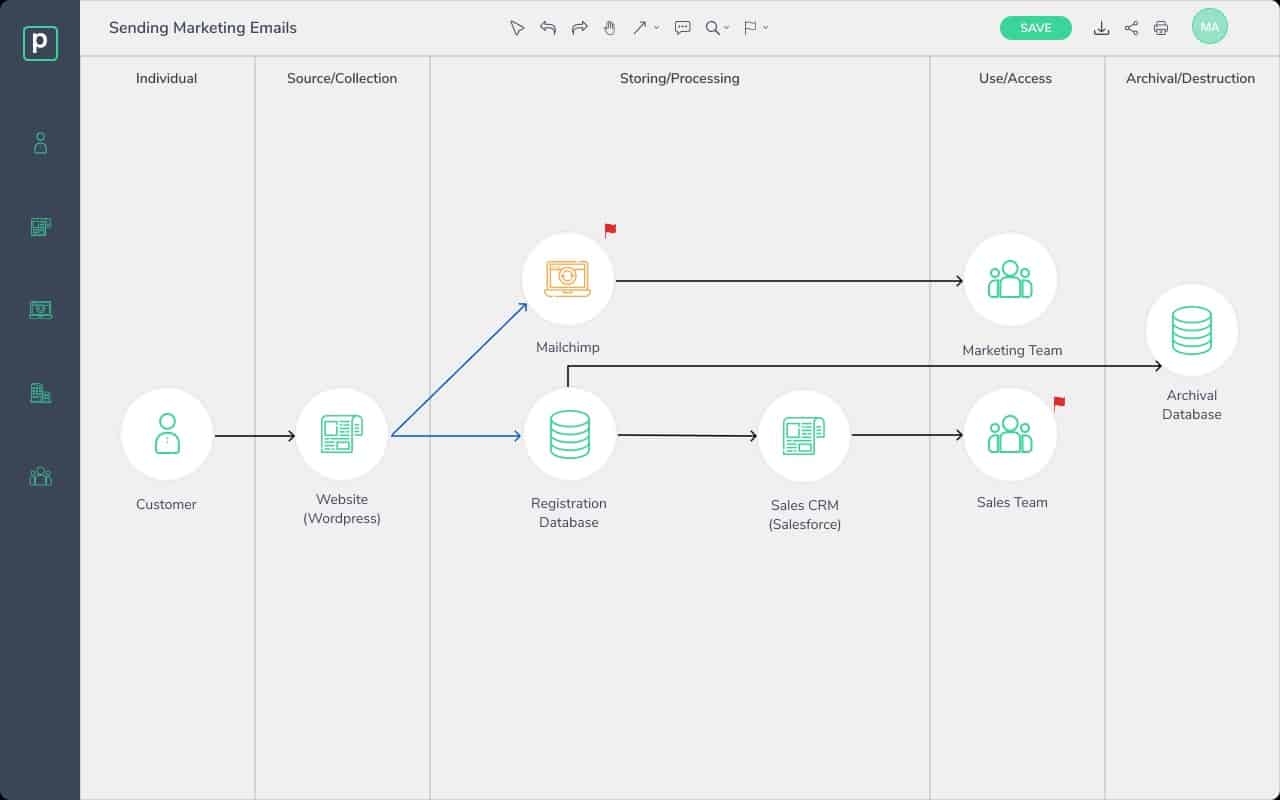
0 Commentaires